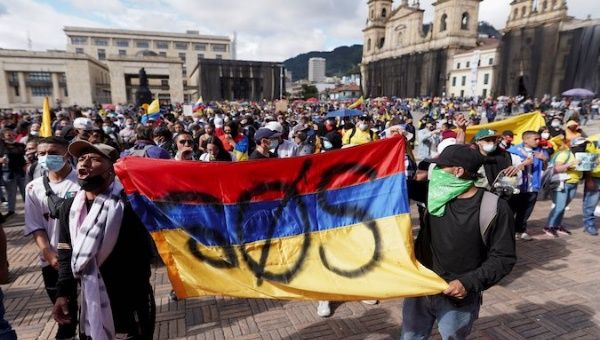By
Brian Lada, Accuweather.com
JUNE 5, 2021

Jo Anne Lin holds solar eclipse glasses on her friend Dorthy Tan while she photographs the sun through glasses during a solar eclipse watch party in Sunset Hills, Mo., on August 21, 2017. File Photo by Bill Greenblatt/UPI | License Photo
The Earth, moon and sun will align again for the second time in as many weeks to create a solar eclipse that will be visible for part of Canada and the United States -- but only if Mother Nature cooperates and provides clear skies.
On May 26, the moon passed through Earth's shadow during a lunar eclipse, and on June 10, the roles will be reversed as the moon casts a shadow on the Earth during the first of two solar eclipses in 2021.
This event will be a far cry from the Great American Eclipse of 2017 when day turned to night from Oregon to South Carolina, but it will still be an impressive show for those in its path.
The upcoming celestial alignment will create an annular solar eclipse, otherwise known as a "ring of fire" eclipse as the moon will be slightly farther away from the Earth than normal, meaning it will not quite be large enough to block out the sun entirely.
The result will be a halo of sunlight around the moon during the height of the eclipse, but this spectacle will only be visible to the remote areas of northern Ontario, far northwestern Greenland, around the North Pole and eastern Russia.
However, millions of people will still be able to see a partial solar eclipse.

A global map of the shadow path for the June 10, 2021, annular solar eclipse. Times are in Coordinated Universal Time (UTC). (Image/NASA's Scientific Visualization Studio )
Right at sunrise on Thursday morning, people across the northeastern U.S. and eastern Canada will be able to see, if skies are clear enough, more than half of the sun blocked out by the moon.

The shaded area of the map is where the solar eclipse will be visible after sunrise on June 10, 2021. (Image/NASA)
People across northern Europe, Iceland, Greenland and northern Russia will also see the moon take a bite out of the sun on Thursday.
Since the moon will never completely block out the sun, proper eye protection is needed throughout the entire eclipse
"It is never safe to look directly at the sun's rays -- even if the sun is partly obscured," NASA warns. "When watching a partial eclipse you must wear eclipse glasses at all times if you want to face the sun, or use an alternate indirect method."
Looking at the sun without a solar filter or eclipse glasses can lead to permanent eye damage, so safety is the top priority for viewing the eclipse first-hand.
Millions of people purchased specially made eclipse glasses for the total solar eclipse in 2017, and they may still be good to use for the upcoming eclipse as long as they have been stored properly.
First, make sure that the glasses have a label that reads "ISO 12312-2" as this is the approved safety standard for eclipse glasses.
"If the filters aren't scratched, punctured, or torn, you may reuse them indefinitely," according to NASA.
People who do not have these eclipse glasses can still enjoy the event by viewing the sun indirectly.
This includes making a simple pinhole projector out of common household items or even just looking at the crescent-shaped shadows that appear when holding out an object like a pasta strainer or crossed fingers.

A pinhole projector is essentially a small hole in a piece of paper. The light that makes it through appears as a crescent when the moon is blocking out part of the sun. (Image/NASA)
Clouds will be concerning for some folks hoping to witness the celestial alignment, including those in some big cities in the mid-Atlantic such as Philadelphia, Pittsburgh and Washington, D.C.
The forecast looks better farther north for Boston, as well as Canadian cities such as Toronto, Ottawa and Montreal, although a few clouds could still cause some disruptions for onlookers. Even better weather is in the offing for much of Atlantic Canada with a mainly clear sky expected on Thursday morning.
Areas farther west, such as Chicago and Minneapolis, will be able to see a small sliver of the sun covered by the moon right at sunrise, but it will not be nearly impressive as areas farther east.
Another solar eclipse is set to unfold later this year in early December, but this will only be visible across Antarctica so only a handful of people and penguins will have a chance to experience the event

This week's eclipse will also be the last solar eclipse visible from North America until Oct. 14, 2023, when another ring of fire eclipse unfolds, but this time over more populated areas of the U.S. and across Central America and northern South America.
This will be an appetizer for the main event on April 8, 2024, when a total solar eclipse is once again visible from the contiguous U.S.
"The 2024 total solar eclipse will be a spectacular eclipse to witness," expert eclipse photographer and eclipse educator Dr. Gordon Telepun said. "The path encompasses many big cities and therefore a large number of people."
It will also last for nearly twice as long as the eclipse in 2017, so folks that get to enjoy this week's event may want to start planning for the main event taking place in less than three years.











